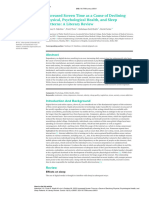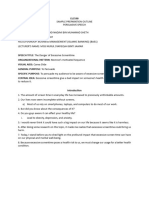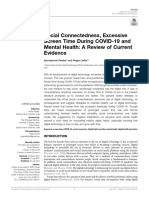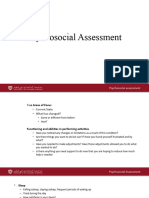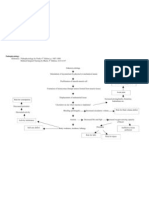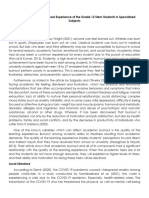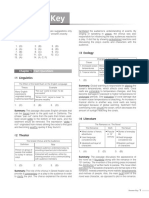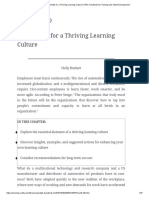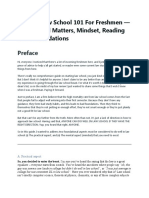0% found this document useful (0 votes)
17 views4 pagesFindings
Participants struggled to differentiate between productive and unproductive screen use, often justifying excessive time on social media and gaming. This shift to digital interactions has led to social isolation, reduced outdoor activities, and negative health impacts, including physical discomfort and mental health issues. Awareness of these problems does not guarantee change, indicating a need for structured support and interventions to reduce screen dependency.
Uploaded by
rasheestar5Copyright
© © All Rights Reserved
We take content rights seriously. If you suspect this is your content, claim it here.
Available Formats
Download as DOCX, PDF, TXT or read online on Scribd
0% found this document useful (0 votes)
17 views4 pagesFindings
Participants struggled to differentiate between productive and unproductive screen use, often justifying excessive time on social media and gaming. This shift to digital interactions has led to social isolation, reduced outdoor activities, and negative health impacts, including physical discomfort and mental health issues. Awareness of these problems does not guarantee change, indicating a need for structured support and interventions to reduce screen dependency.
Uploaded by
rasheestar5Copyright
© © All Rights Reserved
We take content rights seriously. If you suspect this is your content, claim it here.
Available Formats
Download as DOCX, PDF, TXT or read online on Scribd
/ 4











